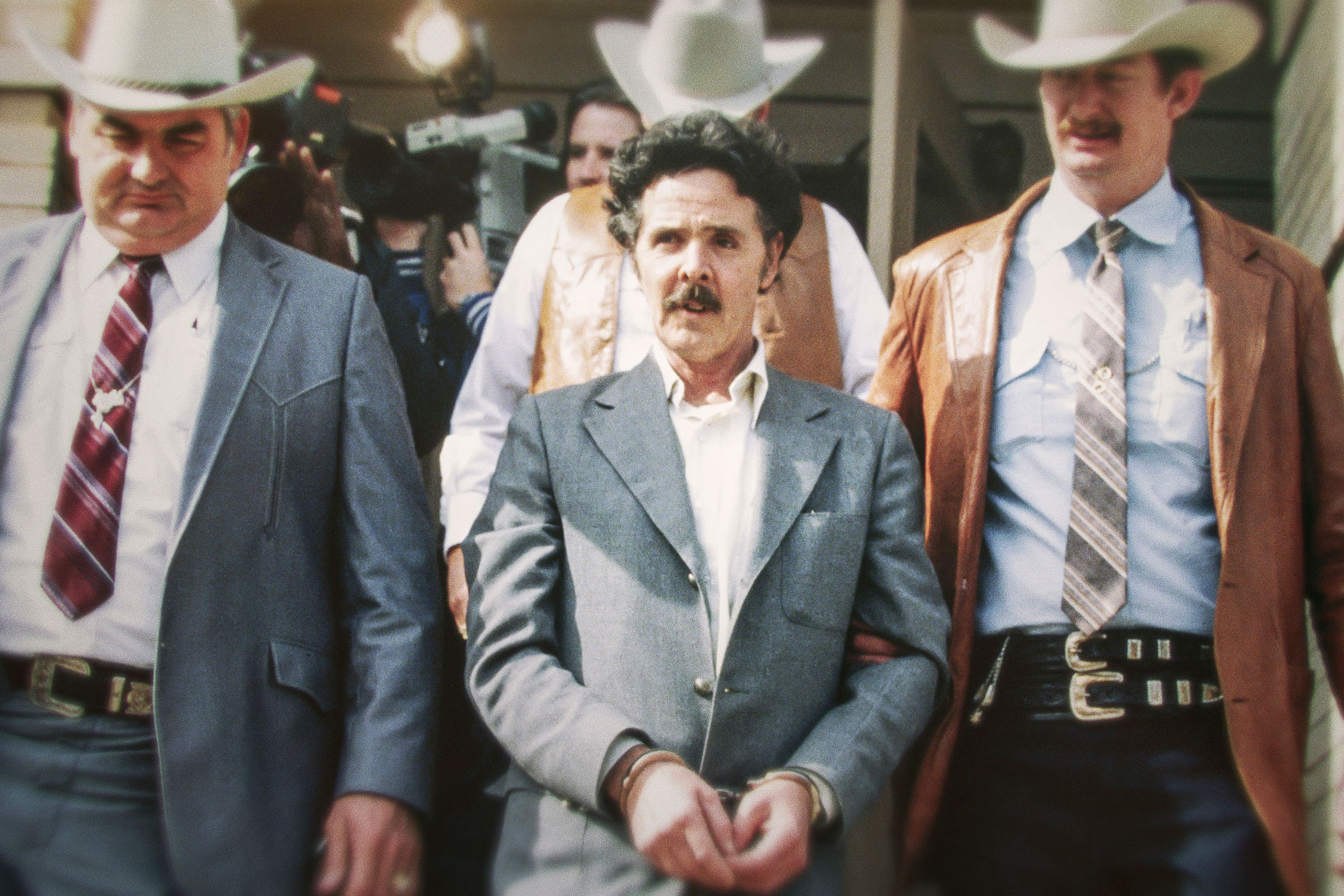Create a free profile to get unlimited access to exclusive videos, breaking news, sweepstakes, and more!
Henry Lee Lucas Claimed He Killed 600 People — But Netflix's 'The Confession Killer' Questions That
"The Confession Killer" tells the story of Henry Lee Lucas, who confessed to hundreds of murders, closing cases that should have remained open.

You've undoubtedly heard of Ted Bundy or Ed Kemper or the Zodiac Killer — but it's less likely you've heard talk of the man once thought to have killed more people than any other, despite his horrifying claim to fame. There's a reason for that, though: A new Netflix documentary casts its eye on the convicted murderer who was once dubbed the most prolific serial killer in America, and how he fooled the justice system by taking credit for hundreds of unsolved crimes he didn't commit.
On Monday, November 19, Netflix released a trailer for "The Confession Killer": a five-part true crime documentary examining how Henry Lee Lucas fooled authorities into closing unsolved crimes by taking credit for hundreds of murders.
So who was Henry Lee Lucas, really, and how many people did he actually kill?
Lucas was born in 1936 in Virginia and died on March 12, 2001 while serving a life sentence in a Texas prison for murder, according to an Associated Press obituary.
He had a deeply troubled childhood where he was allegedly emotionally abused by his mother, Viola Lucas, and lost an eye in a fight with his brother, according to Virginia local news outlet The Pylon. He left Virginia for some time but returned home to live with his mother, who he frequently argued with — and one argument turned fatal the night of Jan. 12, 1960, when he slashed his mother's throat with a knife and left her for dead.
Lucas admitted to the slaying and was sentenced to a psychiatric hospital and then prison, but was released only 10 years later on parole, the local outlet reported.
Following his release, Lucas became a drifter, eventually making his way to Florida where he formed a partnership of sorts with Ottis Toole, another serial killer who would die in prison in 1996.
Lucas also began a relationship with Toole's adolescent niece Becky Powell; he helped to remove her from a youth detention center, after which the pair made their way to Texas in the early 1980s where they befriended and lived with an elderly woman, Katherine Rich.
Rich and Powell later disappeared, and Texas police began to suspect Lucas had killed them, according to the Pylon.
In 1983, Lucas would be caught, arrested in Texas on a weapons charge, and confessed to killing Powell and Rich. But soon he began confessing to hundreds of killings across the country, according to the book "The Texas Rangers: A Registry and History."
In total, he made some 3,000 confessions and confessed to killing over 600 people, an astounding claim.
Lucas' confession spree led to the Texas Rangers establishing the Henry Lee Lucas Task Force, which oversaw the clearance of hundreds of cases Lucas took credit for committing, according to Texas Monthly. But the task force's methods brought shame to the Rangers after it was revealed they provided Lucas with evidence and asked him leading questions in attempts to force a confession, sometimes to crimes that had already been solved.
In a quote shared in the AP obituary reporting his death, Lucas said he was aiming to "wreck Texas law enforcement" with his myriad false confessions.
Lucas would eventually end up convicted on 11 counts of murder although there's plenty of doubt about whether he actually killed more than three people.
Yet many officers who spoke with Lucas still believe he committed a number of killings, despite him frequently lying and providing contradictory claims about committing other killings.
Former Texas Ranger Glenn Elliott said they had interviewed Henry Lee Lucas about certain cases in their jurisdictions and could see for themselves that the task force was dealing with someone who often lied, but claimed he also displayed knowledge about other murders that astounded officers.
“I remember him trying to cop to one he didn’t do ... but there was another murder case where I’ll kiss your butt if he didn’t lead us right to the deer stand where the murder took place. Ain’t no way he could’ve guessed that, and I damn sure didn’t tell him. I think he did that one," Elliot told Texas Monthly.
The district attorney who prosecuted Lucas agreed with that sentiment, insisting to the AP that Lucas was a serial killer who didn't even know how many people he killed.
Although Lucas has been dead for nearly 20 years, authorities are still investigating and attempting to solve the cases he falsely took credit for committing. Just this year, police identified a victim who Lucas had said he killed and for whose murder he had been sentenced to death. (Lucas' death sentence was commuted to life in prison after he recanted his confession and records indicated he was in a different state altogether at the time of that murder, according to the AP.)
The 1979 murder of the woman now known as Debra Jackson remains unsolved.
And just this week, Utah police re-opened an investigation into the 40-year-old murder of Marla Scharp after investigators uncovered evidence proving Lucas likely couldn't have killed her, according to The Salt Lake Tribune.
The Utah Cold Case Coalition's Kara Porter has called for departments across the country to re-open investigations into cold cases linked to Lucas.
"Every case that Henry Lee Lucas falsely confessed to is a cold case,” Porter told the Salt Lake Tribune. “It really has not been solved.”


























